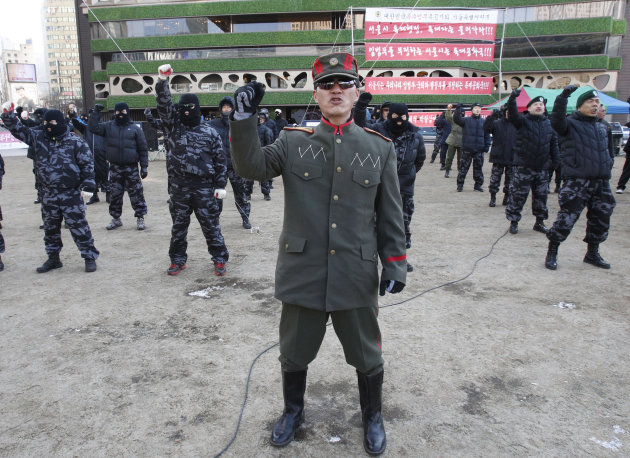
READ MORE - What happens if US Airways and American Airlines merge
They who are of the opinion that Money will do everything, may very well be suspected to do everything for Money



Number one -- the president’s salary is $400,000 a year. The Chief Executive also gets a budget for entertainment, business and travel expenses.
Number two -- Transportation. To get the president from place to place safely, he has Air Force One, Marine One and a limo available at a moment’s notice. A 2012 Congressional Research Service report found that Air Force One costs about $180,000 an hour to operate.
According to the Hawaii Reporter, one round-trip flight to Honolulu by President Obama last month cost about $3.2 million. But the president made two of them because of the fiscal cliff crisis. That doubled the price tag to $6.4 million.
Number three – The White House. For the 2008 fiscal year, Bradley Patterson, a retired Senior Fellow at the Brookings Institution, estimated the cost of running the White House was almost $1.6 billion. And that amount didn’t include unpublished classified expenses.
The president’s White house staff also comes at a steep price. In 2012, the White House reported its payroll grew from $37 million in 2011 to $37.8 million. The list includes 468 names. 139 of which make more than $100,000 a year.
Number four – Secret Service access. Protecting the President takes a great deal of manpower. The agency’s budget this year is $1.6 billion. A portion of that will go toward protecting president while in office and for life.




Here are seven storylines Obama needs to worry about. Presidential politics is about storytelling. Presented with a vivid storyline, voters naturally tend to fit every new event or piece of information into a picture that is already neatly framed in their minds.
No one understands this better than Barack Obama and his team, who won the 2008 election in part because they were better storytellers than the opposition. The pro-Obama narrative featured an almost mystically talented young idealist who stood for change in a disciplined and thoughtful way. This easily outpowered the anti-Obama narrative, featuring an opportunistic Chicago pol with dubious relationships who was more liberal than he was letting on.
A year into his presidency, however, Obama’s gift for controlling his image shows signs of faltering. As Washington returns to work from the Thanksgiving holiday, there are several anti-Obama storylines gaining momentum.
The Obama White House argues that all of these storylines are inaccurate or unfair. In some cases these anti-Obama narratives are fanned by Republicans, in some cases by reporters and commentators.
But they all are serious threats to Obama, if they gain enough currency to become the dominant frame through which people interpret the president’s actions and motives.
Here are seven storylines Obama needs to worry about:
He thinks he’s playing with Monopoly money
Economists and business leaders from across the ideological spectrum were urging the new president on last winter when he signed onto more than a trillion in stimulus spending and bank and auto bailouts during his first weeks in office. Many, though far from all, of these same people now agree that these actions helped avert an even worse financial catastrophe.
Along the way, however, it is clear Obama underestimated the political consequences that flow from the perception that he is a profligate spender. He also misjudged the anger in middle America about bailouts with weak and sporadic public explanations of why he believed they were necessary.
The flight of independents away from Democrats last summer — the trend that recently hammered Democrats in off-year elections in Virginia — coincided with what polls show was alarm among these voters about undisciplined big government and runaway spending. The likely passage of a health care reform package criticized as weak on cost-control will compound the problem.
Obama understands the political peril, and his team is signaling that he will use the 2010 State of the Union address to emphasize fiscal discipline. The political challenge, however, is an even bigger substantive challenge—since the most convincing way to project fiscal discipline would be actually to impose spending reductions that would cramp his own agenda and that of congressional Democrats.
Too much Leonard Nimoy
People used to make fun of Bill Clinton’s misty-eyed, raspy-voiced claims that, “I feel your pain.”
The reality, however, is that Clinton’s dozen years as governor before becoming president really did leave him with a vivid sense of the concrete human dimensions of policy. He did not view programs as abstractions — he viewed them in terms of actual people he knew by name.
Obama, a legislator and law professor, is fluent in describing the nuances of problems. But his intellectuality has contributed to a growing critique that decisions are detached from rock-bottom principles.
Both Maureen Dowd in The New York Times and Joel Achenbach of The Washington Post have likened him to Star Trek’s Dr. Spock.
The Spock imagery has been especially strong during the extended review Obama has undertaken of Afghanistan policy. He’ll announce the results on Tuesday. The speech’s success will be judged not only on the logic of the presentation but on whether Obama communicates in a more visceral way what progress looks like and why it is worth achieving. No soldier wants to take a bullet in the name of nuance.
That’s the Chicago Way
This is a storyline that’s likely taken root more firmly in Washington than around the country. The rap is that his West Wing is dominated by brass-knuckled pols.
It does not help that many West Wing aides seem to relish an image of themselves as shrewd, brass-knuckled political types. In a Washington Post story this month, White House deputy chief of staff Jim Messina, referring to most of Obama’s team, said, “We are all campaign hacks.”
The problem is that many voters took Obama seriously in 2008 when he talked about wanting to create a more reasoned, non-partisan style of governance in Washington. When Republicans showed scant interest in cooperating with Obama at the start, the Obama West Wing gladly reverted to campaign hack mode.
The examples of Chicago-style politics include their delight in public battles with Rush Limbaugh and Fox News and the U.S. Chamber of Commerce. (There was also a semi-public campaign of leaks aimed at Greg Craig, the White House counsel who fell out of favor.) In private, the Obama team cut an early deal — to the distaste of many congressional Democrats — that gave favorable terms to the pharmaceutical lobby in exchange for their backing his health care plans.
The lesson that many Washington insiders have drawn is that Obama wants to buy off the people he can and bowl over those he can’t. If that perception spreads beyond Washington this will scuff Obama’s brand as a new style of political leader.
He’s a pushover
If you are going to be known as a fighter, you might as well reap the benefits. But some of the same insider circles that are starting to view Obama as a bully are also starting to whisper that he’s a patsy.
It seems a bit contradictory, to be sure. But it’s a perception that began when Obama several times laid down lines — then let people cross them with seeming impunity. Last summer he told Democrats they better not go home for recess until a critical health care vote but they blew him off. He told the Israeli government he wanted a freeze in settlements but no one took him seriously. Even Fox News — which his aides prominently said should not be treated like a real news organization — then got interview time for its White House correspondent.
In truth, most of these episodes do not amount to much. But this unflattering storyline would take a more serious turn if Obama is seen as unable to deliver on his stern warnings in the escalating conflict with Iran over its nuclear program.
He sees America as another pleasant country on the U.N. roll call, somewhere between Albania and Zimbabwe
That line belonged to George H.W. Bush, excoriating Democrat Michael Dukakis in 1988. But it highlights a continuing reality: In presidential politics the safe ground has always been to be an American exceptionalist.
Politicians of both parties have embraced the idea that this country — because of its power and/or the hand of Providence — should be a singular force in the world. It would be hugely unwelcome for Obama if the perception took root that he is comfortable with a relative decline in U.S. influence or position in the world.
On this score, the reviews of Obama’s recent Asia trip were harsh.
His peculiar bow to the emperor of Japan was symbolic. But his lots-of-velvet, not-much-iron approach to China had substantive implications.
On the left, the budding storyline is that Obama has retreated from human rights in the name of cynical realism. On the right, it is that he is more interested in being President of the World than President of the United States, a critique that will be heard more in December as he stops in Oslo to pick up his Nobel Prize and then in Copenhagen for an international summit on curbing greenhouse gases.
President Pelosi
No figure in Barack Obama’s Washington, including Obama, has had more success in advancing his will than the speaker of the House, despite public approval ratings that hover in the range of Dick Cheney’s. With a mix of tough party discipline and shrewd vote-counting, she passed a version of the stimulus bill largely written by congressional Democrats, passed climate legislation, and passed her chamber’s version of health care reform. She and anti-war liberals in her caucus are clearly affecting the White House’s Afghanistan calculations.
The great hazard for Obama is if Republicans or journalists conclude — as some already have — that Pelosi’s achievements are more impressive than Obama’s or come at his expense.
This conclusion seems premature, especially with the final chapter of the health care drama yet to be written.
But it is clear that Obama has allowed the speaker to become more nearly an equal — and far from a subordinate — than many of his predecessors of both parties would have thought wise.
He’s in love with the man in the mirror
No one becomes president without a fair share of what the French call amour propre. Does Obama have more than his share of self-regard?
It’s a common theme of Washington buzz that Obama is over-exposed. He gives interviews on his sports obsessions to ESPN, cracks wise with Leno and Letterman, discusses his fitness with Men’s Health, discusses his marriage in a joint interview with first lady Michelle Obama for The New York Times. A photo the other day caught him leaving the White House clutching a copy of GQ featuring himself.
White House aides say making Obama widely available is the right strategy for communicating with Americans in an era of highly fragmented media.
But, as the novelty of a new president wears off, the Obama cult of personality risks coming off as mere vanity unless it is harnessed to tangible achievements.
That is why the next couple of months — with health care and Afghanistan jostling at center stage — will likely carry a long echo. Obama’s best hope of nipping bad storylines is to replace them with good ones rooted in public perceptions of his effectiveness. ( POLITICO )
Blog : Everything For Money